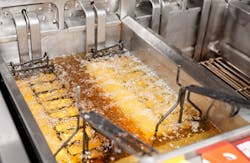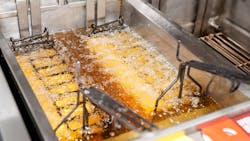Renewable energy company BlackGold Biofuels has opened a first-of-its-kind recycling facility in Charlotte, N.C., that turns wastewater into fuel.
The facility uses wastewater from nearby restaurants. It not only cleans the water and allows its further usage but also produces biofuel from the grease trapped in the water. Recycling deep fryer oil is already an established practice for many restaurants but reclaiming oil from kitchen wastewater is a relatively new concept.
Local commercial and institutional kitchens collect greasy wastewater that they generate during dishwashing and food preparation. This is then loaded onto wastewater haulers and is taken to the BlackGold Biofuels facility. Initially, trash and large particles are removed from the wastewater and then the system extracts animal and plant-based oils and purifies them. The recovered oil is then utilized in the production of biofuels, which aims to offset the local use of petroleum-based fuels that damage the environment and contribute to greenhouse gas emissions. Having locally produced biofuels helps the region to become more energy independent and enhances its energy security, BlackGold Biofuels said in a statement.
The facility purifies the water before discharging it, which reduces the work that local wastewater treatment plants have to do. According to the U.S. Environmental Protection Agency, grease clogs are the most common cause of sewer overflows in the United States and they cause between 50 and 60 percent of all sanitary sewer overflows in the area of Charlotte. That is why having grease removed from wastewater not only reduces the risk of overflows and spills but also cuts the cost of dealing with such occurrences.
At present, the most common way to deal with grease trap waste is either placing it in landfills or spreading it on fields. It can also be transported to special facilities for anaerobic digestion to produce biogas but this process results in more than 70 percent loss of the energy, making it rather ineffective.
According to Jackie Jarrell, Charlotte Mecklenburg Utilities' superintendent of the environmental management division, effective management of grease trap waste is of critical importance for the proper functioning of the wastewater treatment system. The BlackGold Biofuels plant provides the region with financial and environmental solutions, while at the same time keeping grease trap waste out of the local system, Jarrell explained.



